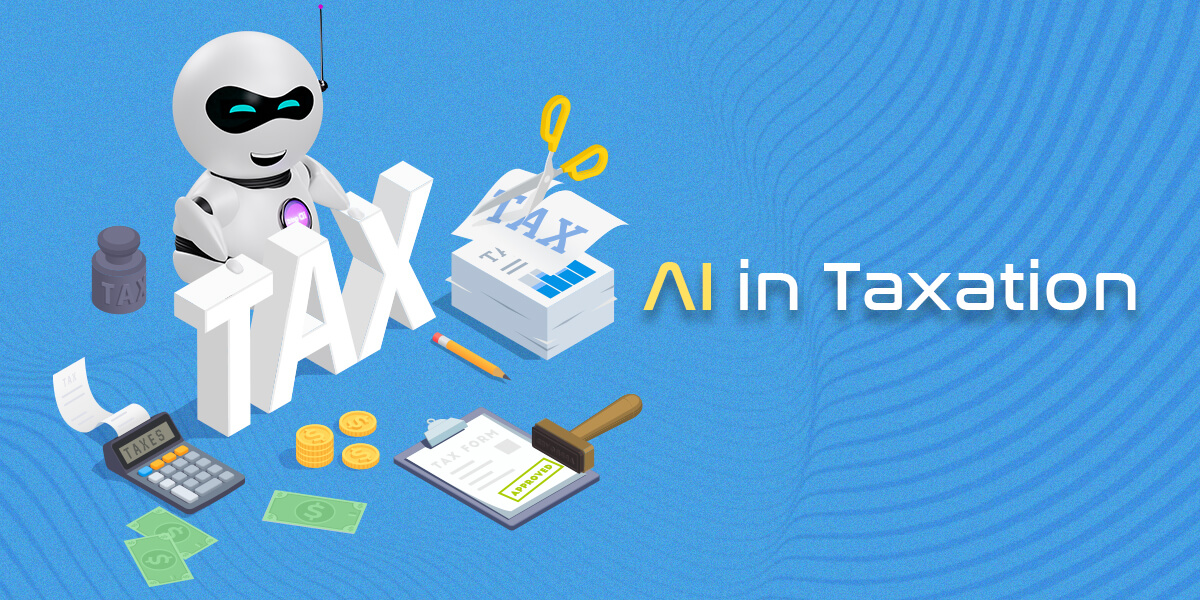Artificial Intelligence (AI) is ubiquitous. AI is in our smartphones, smartwatches, television, fitness trackers, smart speakers, online stores, and streaming channels. The use of AI in taxation is no exception to this. AI in taxation has the potential to completely transform the tax systems. The use of machine learning, robotics, and artificial intelligence in tax administration is emerging in different countries.
- With the use of various AI tools, Denmark has been able to spot 85 out of 100 tax evasion cases in the country.
- The Government of India is using AI and ML tools to fight tax evasion and identify bogus firms.
Governments of various countries around the world are embracing the benefits of AI in taxation. Tax is the main source of income for the Governments of different countries to strengthen the public sector functioning.
Reducing the number of tax defaulters and identifying tax frauds helps to increase the efficiency of tax collection by Governments. The applications of robotics and AI in taxation can prevent tax evasions and provide top-notch services to taxpayers as well.
AI Economist from Sales Force helps to generate excellent tax policies
- AI Economist is a research environment designed by Sales Force to improve the economic designs using various techniques from AI and ML.
- The main purpose behind the design of AI Economist is to help governments, economists, and others to create effective and best tax policies.
- AI Economist is working for better economic growth and development of the country, and at the same time promote social equality in the entire country.
- Reinforcement learning algorithms make use of smart strategies (trial and error type) to improve tax policy models continuously.
Applications of robotics and AI in taxation
The use of AI in taxation has many use cases. The use of AI tax software can help tax authorities to effectively communicate with the various groups of people. For example, the use of AI in taxation can help to identify a group of individuals who are under-reporting their income. They can directly be penalized for tax defaults rather than carrying out investigations and requesting for their cooperation in the matter.
Just like this, the use of AI in taxation offers several benefits. Here are some of them.
Spotting tax evasions
- The rising cases of tax evasions has become a major challenge for many countries around the world.
- Tax evasion is a direct loss to the country and a big hindrance in the progress of a country.
- With the use of AI in taxation and ML algorithms, a robust AI powered system can be created.
- The AI powered system can help authorities and AI tax advisors to identify unusual financial transaction entries in large data sets.
- The use of predictive analytics can help tax authorities identify frauds by organizations as well as individuals.
Improving transparency in the taxation system
- Bribing tax officials in the tax department can impact a country’s growth.
- Even though stringent laws have been enforced by the governments of countries to reduce corruption, it is extremely difficult to keep an eye on every individual in the tax sector.
- The use of robotics and AI will automate key processes in taxation, thus eliminating corruption.
- Automated processes in taxation will increase transparency and can help stop corruption.
Forecasting taxation
- The use of AI systems and AI tax software can help an AI tax advisor to forecast the tax payable depending on the sales trends for an organization.
- Predictive analytics and AI algorithms can also offer suggestions to individuals for investment purposes.
For example, the use of predictive analytics AI models can help an AI tax advisor to provide assistance to clients who are looking to invest in a particular stock.
Identifying tax credits and deductions
AI powered robots have the potential to perform an in-depth analysis of data.
Predictive analytics helps AI robots to identify the possible tax credits and deductions in the current financial year based on the previous tax documentations.
With the help of an AI tax software, an AI tax advisor can advise clients on investment opportunities to save tax for the financial year right at the beginning.
Considering the benefits of AI, it makes sense for governments and organizations to invest in AI tax software. The applications of robotics and AI in taxation can help reduce the workload of tax authorities drastically, thus enabling them to focus more on the core functions rather than administrative tasks.

